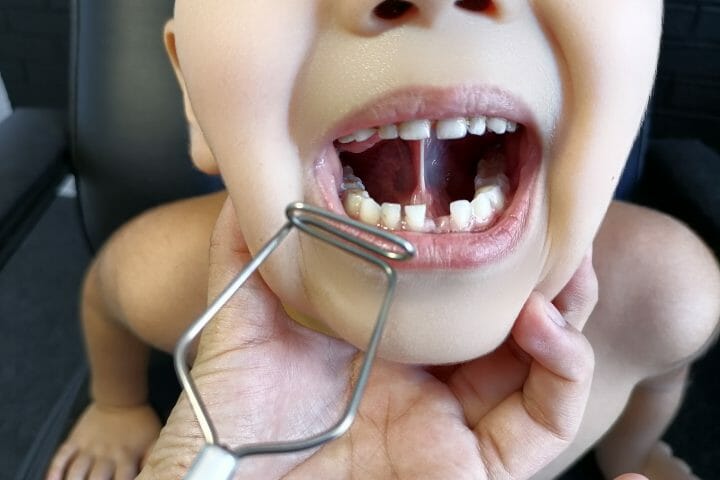Stuttering is a common childhood problem that often resolves with age. But if doesn’t, can you get disability for stuttering? Can you get it if your child stutters? What are the conditions you need to satisfy? Find out more in the article below.
Contents
When most people think of disability, they think of a physical impairment that limits a person’s activities. However, mental and speech impairments can also qualify as disabilities. This means that anxiety, depression, and stuttering can make someone eligible for disability benefits. Stuttering is an uncommon speech disorder that affects almost 3 million Americans. It affects people of all ages, but it’s most common in children. In this post, we’ll explore whether stuttering qualifies as an impairment and how to get a disability for it. Stay tuned!

What Is Stuttering?
Stuttering is a speech disorder that affects the fluency of speech. Stuttering can make communication difficult and negatively impact a person’s quality of life. People who stutter may have difficulty speaking in a smooth, fluid manner. They may repeat words or sounds or prolong certain words or sounds.
There are various treatment options available to help people manage their stuttering. Early intervention is essential for children who stutter, as stuttering can persist into adulthood if not treated. With treatment, many people can improve their communication skills and get fluent speech.
What Are The Causes And Types Of Stuttering?
There are many different causes of stuttering, and it can vary depending on the individual.
However, some common causes include:
- Genetic factors: Stuttering is often hereditary, so if you have a family history of stuttering, you may be more likely to experience it.
- Neurological factors: Disruptions in the neural pathways that control speech can also lead to stuttering.
- Psychological factors: Stress, anxiety, emotional trauma, and other psychological factors can trigger or worsen stuttering.

There are three main types of stuttering: Developmental, Neurogenic, and Psychogenic.
- Developmental stuttering is the most common type and typically begins during childhood.
- Neurogenic stuttering is caused by damage to the nervous system and can occur at any age.
- Psychogenic stuttering is rare and is generally caused by psychological factors such as stress or anxiety.
You might also like to read: Can You Get Disability For Being Short?
How Speech Affects Your Ability To Work In Stuttering?
When you stutter, your communication ability gets affected. This can bring about speech difficulties, make it harder to give presentations, or even order a coffee. Your stutter may also affect your ability to work.
There are many ways that your stutter can impact your job. For example, you may have trouble communicating with clients or customers. You may also have difficulty participating in team meetings or giving presentations. You may find it hard to ask questions or give directions.
Your stutter may also affect your ability to advance in your career. If you cannot communicate effectively, you may not be able to get promoted. You may also find it difficult to switch jobs if you need to.

Speech Disorders and Getting Disability
Under the Social Security Disability Insurance Program, several speech disorders qualify for disability benefits, including stuttering. If a child stutters, they are eligible for Supplemental Security Income if their family has a severe financial need.
If you stutter, your disability must meet the criteria set out by the SSA in its Blue Book listing. SSA will consider your Residual Functional Capacity and assess for other jobs that can help you earn income before giving you benefits.
There are many different speech disorders, and the symptoms can vary widely from person to person. Some people may have difficulty producing certain sounds, while others may have trouble with the rhythm or fluency of their speech. Still, others may have problems with both sound production and fluency.
Most speech disorders are neurological, which means they originate in the brain. However, some disorders may be caused by physical abnormalities, such as cleft palate or vocal cord paralysis. In some cases, the cause of a speech disorder is unknown.
Speech disorders can range from mild to severe and impact a person’s communication ability. Some people with milder speech disorders may only have difficulty with specific sounds or words, while people with more severe forms may be completely unable to speak.
Most speech disorders can be effectively treated with speech therapy. In some cases, however, the disorder may be so severe that the person cannot benefit from speech therapy. Other forms of treatment, such as medication or surgery, may be necessary for these instances.
You might also like to read: Parenting a Child with Intellectual Disability
Can I Qualify for Social Security Disability or SSI Due To My Speech Impairment?
Speech impairment can make it difficult for an individual to communicate effectively. If your speech impairment is so severe that it prevents you from working, you may be eligible for either Supplemental Security Income (SSI) or Social Security disability (SSD).
To qualify for SSD benefits, you must first have worked long enough and paid Social Security taxes. Then, you must prove that your speech impairment is “severe” and “medically determinable.”
A speech impairment is considered “severe” if it significantly limits your ability to communicate with others. A “medically determinable” impairment can be diagnosed by a medical professional.
You may also be eligible for SSI benefits if you cannot work due to your speech impairment. SSI is a needs-based program, which means you must have limited income and resources to qualify.

Process SSA Use To Determine If Speech Impairment Qualifies For Benefits
The Social Security Administration (SSA) uses a five-step process to determine if an individual’s speech impairment qualifies them for disability benefits.
First, the SSA will consider whether the individual is working at a “substantial gainful activity” level. If the individual is not working or is working but earning below a certain amount, they will move on to the next step.
Second, the SSA will examine whether the individual’s speech impairment meets or equals a listing in the agency’s “Blue Book” of disabling conditions. If it does, the individual will automatically qualify for benefits. If not, the evaluation will continue.
Third, the SSA will determine whether the individual’s speech impairment prevents them from doing their work in the past. If so, the individual will qualify for benefits. If not, the evaluation will continue.
Fourth, the SSA will consider whether the individual’s speech impairment prevents them from doing any other type of work. If so, the individual will qualify for benefits. If not, the individual will be denied benefits.
Finally, the SSA will review the individual’s age, education, and work experience to determine if there are any jobs available that they can do despite their speech impairment. If no such jobs are available, the individual will qualify for benefits. If there are such jobs available, the individual will be denied benefits.
You might also like to read: Is Asthma a Disability? Your Questions Answered
What are the Americans with Disabilities Act ADA?
The Americans with Disabilities Act (ADA) is a civil rights law that prohibits discrimination against people with disabilities. The ADA covers all aspects of daily life, including employment, transportation, and access to public places.
The ADA was passed in 1990 and has since been amended several times. The most recent amendment, which went into effect in 2009, broadened the definition of “disability” to include a wider range of conditions.
People with disabilities face many barriers in everyday life. The ADA is designed to remove those barriers and give people with disabilities the same opportunities as everyone else.
There are three main parts to the ADA:

Title I: Employment Discrimination – This section of the ADA prohibits discrimination against people with disabilities. It requires employers to provide reasonable accommodations for employees with disabilities, and it prohibits them from discriminating against applicants or employees because of their disability.
Title II: Public Transportation – This section of the ADA requires all public transportation systems, including buses, trains, and taxis, to be accessible to people with disabilities. It also requires that these systems provide adequate information about accessibility options.
Title III: Public Accommodations – This section of the ADA requires all businesses and organizations that serve the public to be accessible to people with disabilities. This includes restaurants, hotels, stores, hospitals, and more. It also requires these businesses to provide adequate information about accessibility options.
The ADA is enforced by the Department of Justice (DOJ). The DOJ can bring lawsuits against businesses and organizations that violate the ADA, and it can also provide technical assistance to help them comply with the law.
The ADA is an important law that protects the rights of people with disabilities. It ensures that they have the same opportunities as everyone else, and it helps to make our society more inclusive and accessible for all.

As A Stutterer, Why Should I Be Interested In The Ada?
As a stutterer, the Americans with Disabilities Act (ADA) provides you with essential protections in the workplace. The ADA is a federal law that prohibits discrimination against people with disabilities in all areas of public life, including transportation, employment, education, and access to government services.
The ADA requires employers to provide reasonable accommodations to qualified employees with disabilities. This means that if I am a qualified individual with a disability, my employer must provide me with accommodation that allows me to perform the essential functions of my job.
For example, if I need extra time to complete a task because of my stuttering, my employer may need to give me additional time or allow me to work from home.
Frequently Asked Questions
Is stuttering a brain disorder?
There is a lot of debate surrounding whether or not stuttering is a brain disorder. Some experts believe that it is, while others think it isn’t. There is still a lot of research needed in this area to say one way or the other definitively. However, there are some indications that stuttering may be related to brain activity.
For example, studies have shown that people who stutter tend to have different patterns of brain activity than those who don’t stutter. Additionally, some experts believe that stuttering may be genetic and could be passed down through families. Ultimately, more research is needed to determine whether or not stuttering is a brain disorder.
Is stuttering a part of ADHD?
While stuttering is not technically a part of ADHD, there is a strong correlation. Many children who stutter also have ADHD, and vice versa. This is likely because both conditions involve difficulties with communication and self-regulation.
If your child has both ADHD and stuttering, it is essential to seek treatment for both conditions to help them improve their overall communication skills.
How can I get rid of stuttering?
There are many different ways to get rid of stuttering. Some people may need to see a speech therapist to help them with their stutter, while others may be able to overcome it on their own. Here are some tips that may help you if you’re looking to get rid of your stutter:
Practice speaking slowly: This can be not easy at first, but it’s essential to go at your own pace and not try to rush your speech. Slow down and take breaks between words if you need to.
Relax your body: Tension can worsen stuttering, so it’s essential to relax your body and jaw when speaking. Take deep breaths and focus on keeping your body relaxed.
Wrap Up
Speech impediments such as stuttering can impair your ability to be gainfully employed and hamper your work, especially in areas that require communication with customers and clients. If you suffer from stuttering, you may be qualified for disability benefits as outlined above.
Thank you for reading, we hope we covered everything that you wanted to know!
